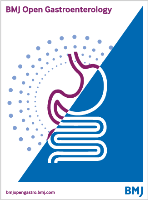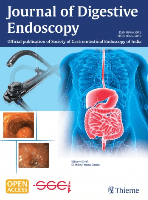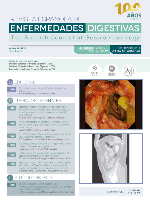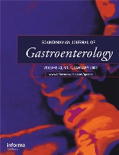
DIGESTION
Scope & Guideline
Innovating clinical practices for enhanced digestive health.
Introduction
Aims and Scopes
- Clinical Guidelines and Evidence-Based Practices:
The journal publishes articles that provide evidence-based clinical guidelines for managing various gastrointestinal conditions, ensuring that practitioners have access to the latest recommendations. - Endoscopic Techniques and Innovations:
There is a significant focus on advancements in endoscopic procedures, including techniques like endoscopic submucosal dissection and new devices, which are critical for improving patient outcomes in gastrointestinal surgeries. - Management of Inflammatory Bowel Diseases (IBD):
Research on the clinical features, treatment strategies, and management of IBD such as Crohn's disease and ulcerative colitis is a core area, reflecting the growing prevalence and complexity of these conditions. - Digestive Disorders and Their Pathophysiology:
The journal covers a wide range of digestive disorders, exploring their underlying mechanisms, risk factors, and complications, which is essential for developing effective treatment strategies. - Microbiome Research and Its Clinical Implications:
There is an increasing interest in the role of the gut microbiome in digestive health, including its impact on diseases like colorectal cancer and inflammatory bowel disorders. - Patient Quality of Life and Symptom Management:
Articles addressing the quality of life and symptom management strategies for patients with gastrointestinal diseases are prevalent, emphasizing the importance of holistic care.
Trending and Emerging
- Telemedicine and Remote Monitoring:
The COVID-19 pandemic has accelerated the adoption of telemedicine in gastroenterology, with recent articles exploring its effectiveness in managing gastrointestinal conditions and enhancing patient access to care. - Personalized Medicine in Gastroenterology:
There is a notable trend towards personalized treatment plans based on genetic, microbiome, and phenotypic profiles of patients, particularly in the management of IBD and colorectal cancer. - Impact of Diet and Lifestyle on Gut Health:
Research highlighting the influence of dietary patterns and lifestyle factors on gastrointestinal health is gaining traction, reflecting a holistic approach to managing digestive disorders. - Artificial Intelligence and Technology in Endoscopy:
Emerging technologies, especially the use of AI in endoscopic procedures for detection and diagnosis, are increasingly featured, marking a significant shift towards integrating technology in clinical practice. - Patient-Centered Care and Quality of Life Assessments:
The focus on patient-centered approaches, including assessments of quality of life and symptom relief, is increasing, emphasizing the importance of patient perspectives in treatment outcomes.
Declining or Waning
- Basic Science and Laboratory Studies:
There has been a noticeable decrease in the publication of basic science research and laboratory studies, indicating a shift towards clinical applications and translational research that directly impacts patient care. - Surgical Techniques for Gastrointestinal Disorders:
Research focused on traditional surgical techniques has seen a reduction, possibly due to the increasing preference for minimally invasive endoscopic procedures and a focus on their outcomes. - Pharmacological Treatments for Digestive Disorders:
The volume of articles discussing pharmacological treatments, particularly older therapies, has diminished, as newer, more effective treatment options are being prioritized. - Epidemiological Studies without Clinical Application:
While epidemiological research is still relevant, there has been a decline in studies that do not lead to direct clinical applications or interventions, suggesting a preference for research that translates into practice.
Similar Journals

Indian Journal of Gastroenterology
Bridging Research and Practice in Gastrointestinal HealthThe Indian Journal of Gastroenterology, a prominent publication in the field of gastroenterology, is published by Springer India. With roots dating back to 1982 and an ongoing commitment to disseminating high-quality research, this journal serves as a vital platform for researchers, practitioners, and students interested in gastrointestinal health and diseases. It boasts an impressive track record with a Scopus rank of #82 in the gastroenterology category and a 2023 quartile ranking of Q3, firmly situating it within the competitive landscape of medical journals. Although it is not an open-access journal, the Indian Journal of Gastroenterology offers accessible research articles contributing significantly to the field, facilitating informed discussion and advancing knowledge in gastrointestinal medicine. The journal's comprehensive focus covers a wide range of topics from clinical studies to innovative therapeutic approaches, ensuring its relevance to current medical practices and the evolving challenges in gastroenterology.

BMJ Open Gastroenterology
Unveiling Cutting-Edge Discoveries in GastroenterologyBMJ Open Gastroenterology is a premier open access journal published by the esteemed BMJ Publishing Group, focusing on the dynamic and evolving field of gastroenterology. Established in 2014, the journal has rapidly ascended in stature, reflected in its impressive 2023 Q1 ranking in gastroenterology and its position within the top 25% of journals in the category according to Scopus. With a mission to disseminate high-quality, peer-reviewed research with global significance, the journal provides a vital platform for researchers, professionals, and students alike to share their findings and advancements in gastrointestinal medicine. Operating from its headquarters in London, England, the journal's open access format ensures wide visibility and accessibility of cutting-edge research, making it an invaluable resource for those dedicated to improving patient care and driving innovation in gastroenterological sciences. By engaging with this journal, contributors and readers can stay at the forefront of critical developments in the field, fostering a collaborative environment for knowledge exchange.

Gastroenterology Research
Advancing gastroenterology through innovative research.Gastroenterology Research is a prominent scholarly journal dedicated to advancing the field of gastroenterology. Published by ELMER PRESS INC, this journal serves as a vital platform for disseminating innovative research, clinical findings, and comprehensive reviews that explore the complexities of the gastrointestinal system. With an ISSN of 1918-2805 and an E-ISSN of 1918-2813, it reaches a global audience of researchers, healthcare professionals, and students eager to contribute to or keep abreast of the latest developments in gastroenterology. Though details such as the H-index and Scopus rankings are currently unspecified, the journal's commitment to quality and impact in the medical research community is evident. Gastroenterology Research aims to foster collaboration and knowledge sharing among experts, ultimately improving patient care and outcomes within this critical area of health science. Explore the cutting-edge studies published within its pages and engage with a community passionate about the investigation and treatment of gastrointestinal diseases.

Journal of Digestive Endoscopy
Innovating Techniques for Better Patient OutcomesJournal of Digestive Endoscopy is a premier academic journal published by THIEME MEDICAL PUBL INC, focusing on the rapid advancements and innovative techniques in the field of digestive endoscopy. Established as an Open Access platform since 2011, this journal aims to disseminate high-quality research, reviews, and clinical studies that contribute to the understanding and improvement of digestive health. Featuring a broad spectrum of topics ranging from diagnostic procedures to therapeutic interventions, the journal serves as an essential resource for researchers, clinicians, and students alike who seek to enhance patient outcomes and advance their knowledge in gastroenterology. With its commitment to accessibility and academic rigor, the Journal of Digestive Endoscopy plays a vital role in fostering collaboration and innovation within the scientific community.

Minerva Gastroenterology
Driving Progress in Gastroenterology and BeyondMinerva Gastroenterology, published by EDIZIONI MINERVA MEDICA, is a notable academic journal dedicated to advancing the field of gastroenterology and related disciplines. With an ISSN of 2724-5985 and an E-ISSN of 2724-5365, this journal gathers innovative research from diverse areas including internal medicine, endocrinology, and metabolism. Though characterized by its open-access policies, Minerva Gastroenterology aims to provide a platform for high-quality scholarly articles with an emphasis on critical reviews, clinical studies, and translational research. Since its inception in 2021, the journal has managed to secure a reputation reflected in its Q3 rank across multiple categories in 2023, as well as its standing in Scopus rankings, positioning it in the 45th to 47th percentile among renowned medical journals. Situated in Turin, Italy, it fosters collaboration and knowledge-sharing among researchers and practitioners, making it an essential resource for those seeking to deepen their understanding of gastroenterological conditions and enhance clinical practices.

AMERICAN JOURNAL OF GASTROENTEROLOGY
Exploring Innovations in Digestive Health and Hepatology.AMERICAN JOURNAL OF GASTROENTEROLOGY, published by Lippincott Williams & Wilkins, stands as a premier journal in the field of gastroenterology and hepatology, boasting a notable impact factor that underscores its influence in the medical community. With an ISSN of 0002-9270 and an E-ISSN of 1572-0241, this journal has a long-standing tradition since its inception in 1938, officially recognized from the year 1947 to 2024. It holds esteemed positions in Q1 quartiles for both gastroenterology and hepatology as of 2023, reflecting its high-quality research output and its crucial role in advancing medical knowledge. Ranked 13th out of 167 in the field of Gastroenterology and 13th out of 82 in Hepatology by Scopus, it serves as an essential resource for researchers, professionals, and students alike, fostering an environment for the dissemination of groundbreaking studies and insights in gastrointestinal health. Its comprehensive focus on clinical and translational aspects aims to illuminate the complexities of digestive diseases, promising to contribute significantly to advancements in patient care and treatment methodologies.

REVISTA ESPANOLA DE ENFERMEDADES DIGESTIVAS
Advancing the frontiers of digestive health.REVISTA ESPANOLA DE ENFERMEDADES DIGESTIVAS, a pivotal Open Access journal published by ARAN EDICIONES, S A, has been at the forefront of advancing the field of gastroenterology since its inception in 1990. With a robust commitment to disseminating high-quality research, the journal provides a platform for researchers, clinicians, and students to share innovative findings and insights concerning digestive diseases. The journal is characterized by its Q3 ranking in both Gastroenterology and Miscellaneous Medicine categories, indicative of its significant contributions to these fields, and is positioned within the 36th percentile of Scopus rankings for medicine related to gastroenterology. Based in Spain, REVISTA ESPANOLA DE ENFERMEDADES DIGESTIVAS has embraced the Open Access model since 2004, ensuring that its articles are readily available to a global audience without financial barriers. The journal not only supports academic discourse but also plays a crucial role in improving clinical practices and health outcomes related to digestive health.

JOURNAL OF GASTROENTEROLOGY
Pioneering breakthroughs in digestive health.JOURNAL OF GASTROENTEROLOGY, published by SPRINGER JAPAN KK, is a premier academic journal that has been at the forefront of gastrointestinal research since its inception in 1994. With an impressive Impact Factor and ranking in the top quartile (Q1) of its category, this journal holds a significant place in the field of gastroenterology, currently ranked 12th out of 167 in Scopus, placing it in the 93rd percentile. The journal serves as an essential platform for disseminating innovative research, clinical studies, and reviews that foster advancements in the understanding and treatment of gastrointestinal diseases. Although it does not offer Open Access options, it provides researchers, clinicians, and students access to crucial insights and breakthroughs pivotal to improving patient care and outcomes in gastroenterology. With a commitment to high-quality peer-reviewed content, JOURNAL OF GASTROENTEROLOGY plays a vital role in shaping the future of gastrointestinal health and research.

Clinical and Experimental Gastroenterology
Elevating the standard of care through groundbreaking research.Clinical and Experimental Gastroenterology is a prestigious Open Access journal published by DOVE MEDICAL PRESS LTD, dedicated to advancing the field of gastroenterology through rigorous research and innovative insights. With its ISSN 1178-7023, the journal has established a significant presence since its inception in 2008 and has been actively contributing to the academic landscape from New Zealand. The journal has attained a commendable Q2 rank in the Gastroenterology category as of 2023, placing it in the upper-tier percentile of similar journals. It currently ranks #57 out of 167 in the Scopus database, highlighting its relevance and impact in the field at the 66th percentile. Encompassing a wide range of topics within gastroenterology, the journal aims to foster discussion and disseminate findings that enhance clinical practices and patient care. Researchers, healthcare professionals, and students alike will find this journal an invaluable resource for cutting-edge research and developments in gastrointestinal health.

SCANDINAVIAN JOURNAL OF GASTROENTEROLOGY
Unlocking New Frontiers in Digestive Health ResearchSCANDINAVIAN JOURNAL OF GASTROENTEROLOGY, published by Taylor & Francis Ltd, is a leading journal in the field of gastroenterology, dedicated to advancing clinical and experimental research related to digestive health. With an ISSN of 0036-5521 and an E-ISSN of 1502-7708, this journal provides a platform for high-quality research that addresses the complexities of gastrointestinal diseases. Since its inception in 1966, the journal has consistently contributed valuable insights and is currently categorized in the Q2 quartile of gastroenterology journals, reflecting its impact and relevance in the field, with a Scopus rank of 87 out of 167 in Medicine - Gastroenterology. Researchers and practitioners are encouraged to explore the journal's archives to enhance their understanding and stay abreast of innovative strategies for managing gastrointestinal disorders. The SCANDINAVIAN JOURNAL OF GASTROENTEROLOGY remains a crucial resource for those committed to improving patient outcomes through rigorous scientific inquiry and the sharing of impactful findings.